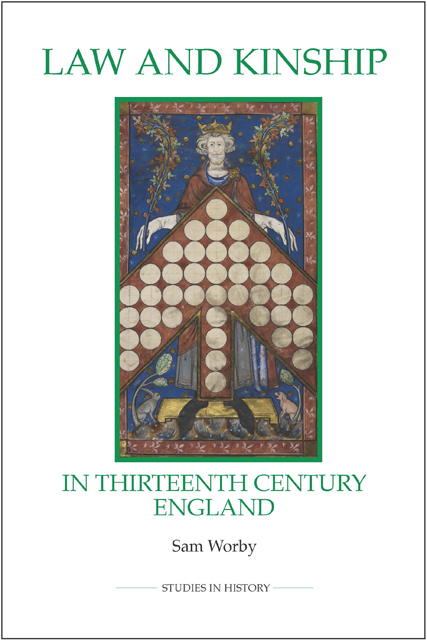Book contents
- Frontmatter
- Contents
- List of illustrations
- List of tables
- Acknowledgements
- Abbreviations
- Introduction
- 1 Canon law kinship structures
- 2 Common law kinship structures
- 3 The dominance of canon law kinship ideas
- 4 Kinship laws in practice
- 5 Trends underlying legal kinship structures
- Conclusion
- Appendices
- Bibliography
- Index
4 - Kinship laws in practice
Published online by Cambridge University Press: 01 March 2023
- Frontmatter
- Contents
- List of illustrations
- List of tables
- Acknowledgements
- Abbreviations
- Introduction
- 1 Canon law kinship structures
- 2 Common law kinship structures
- 3 The dominance of canon law kinship ideas
- 4 Kinship laws in practice
- 5 Trends underlying legal kinship structures
- Conclusion
- Appendices
- Bibliography
- Index
Summary
In practice, the interaction of litigants with the rules, and thus with the two legal kinship systems, was more complicated than the books of either legal system suggested: canon law rules could not be applied completely and the common law encompassed several senses of kinship. It is clear that neither the canon nor the common law kinship system was limited to the bookish sphere and that, to a greater or lesser extent, both applied in practice, and cannot be properly understood without this dimension (although the application of the law in court is by no means the whole of the picture either). There was a nexus between formal concepts of kinship and how people acted in relation to these ideas, and a tactical link between structures, rules, practice and reality.
An important preliminary is an understanding that these cases were in some sense constructions. The shape of the law forced people into narratives that fitted with and enlisted the force of the rules. Some people lied or deceived themselves, and they presented facts in the manner most likely to succeed if they were well informed or had legal advice. Such narratives are powerful shapers of the presentation of underlying facts. The close link between both marriage and inheritance and land could lead to strong pressures on the potential litigant and this should be recalled when considering specific cases.
At canon law
Canon law kinship rules can be seen in court records in three main ways: as a ground for ‘divorce’; a defence against an action to enforce a marriage, usually in litigation between parties; or as a matter of disciplinary action in an office case (where the canon law courts were exercising their quasicriminal jurisdiction). The evidence that divorces on grounds of kinship were rare should not obscure the fact that canon law kinship law was applied in contemporary courts, although spiritual kinship and public honesty were comparatively unusual.
An example where the exception of affinity was successfully used was the case of Alice La Marescal c Elias de Suffolk,which came before the arch-bishop's court in Canterbury in 1292–3.
- Type
- Chapter
- Information
- Law and Kinship in Thirteenth-Century England , pp. 92 - 114Publisher: Boydell & BrewerPrint publication year: 2010

